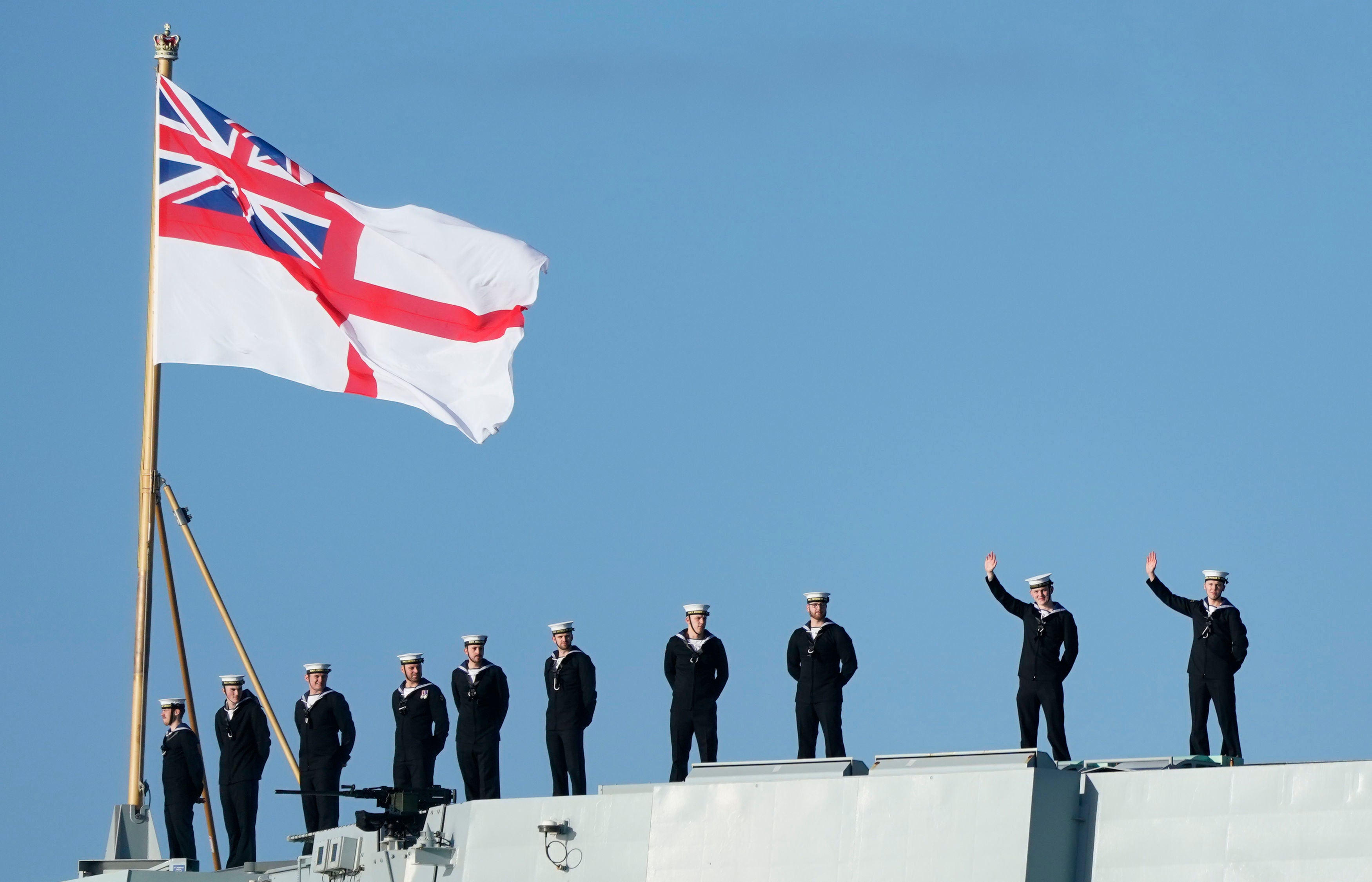Navy recruits no longer required to swim in ‘desperate’ bid to boost applications
Royal Navy recruits no longer have to be able to swim if they want to join the force

Royal Navy applicants will no longer have to prove they can swim before joining, with experts warning it is a “desperate” attempt to fix the recruitment crisis.
Recruits were previously required to pass a 30-minute swim test to join the Navy, with the ability to swim being a basic-level entry requirement for the force.
But since a drastic fall in applications was reported last year, the Navy has sought to remove barriers to entry to encourage a wider pool of recruits.
UK defence secretary Grant Shapps claimed in February the situation was improving, with applications now at an eight-year high.
The move to eradicate the need to pass a basic swimming test, however, has been described as a step too far and a “true sign of desperation” on the part of the recruiters.
“I absolutely get that there is a growing issue around young people being able to swim and therefore, maintaining the swim test could be seen as reducing the ‘pool of eligible candidates’, but at what point do we say enough is enough?” an anonymous defence source toldSky News.
“Recruits who can’t swim will need additional training and therefore their ‘working days’ in training will be longer. Surely avoiding this by learning to swim before joining is the best for everyone - including the taxpayer?
"This is just spin, a distraction - they’re desperate."
Under the new recruitment scheme, the source said applicants will be able to “self-declare” that they can swim.
If it transpires they are not able to pass the Royal Navy Swim Test, they will remain in Phase 1 basic training while they receive swimming lessons.
While this means that no recruit can be fully qualified as a member of the Royal Navy without being able to complete the now scrapped 30-minute swim test, the source said such a move forces the taxpayer to pay for service personnel while they train - instead of ensuring the recruit simply learns on their own time.
The Navy may also need to find more swimming instructors as a result of the change.
A Royal Navy spokesperson said that the change in requirements to entry reflected the fact that recruitment and retention were “absolute priorities” for the force
"All Royal Navy and Royal Marine candidates are required to successfully pass the swim test to be able to pass out of Phase 1 training and the level of swimming ability required has not changed,” the spokesperson said.
"Recruitment and retention are absolute priorities, which is why we are introducing a range of measures to speed up recruitment.
"These changes are to reduce the delay for candidates that are eligible to join, while retaining the same level of swimming ability."
Join our commenting forum
Join thought-provoking conversations, follow other Independent readers and see their replies
Comments
Bookmark popover
Removed from bookmarks